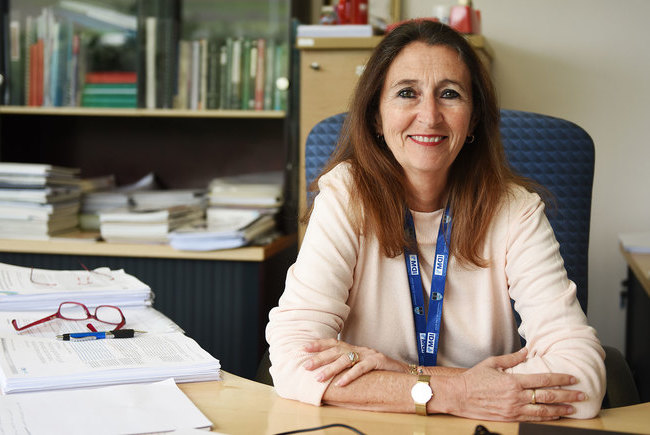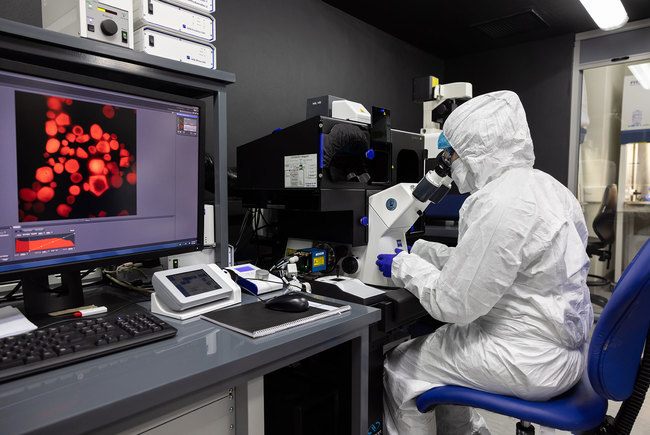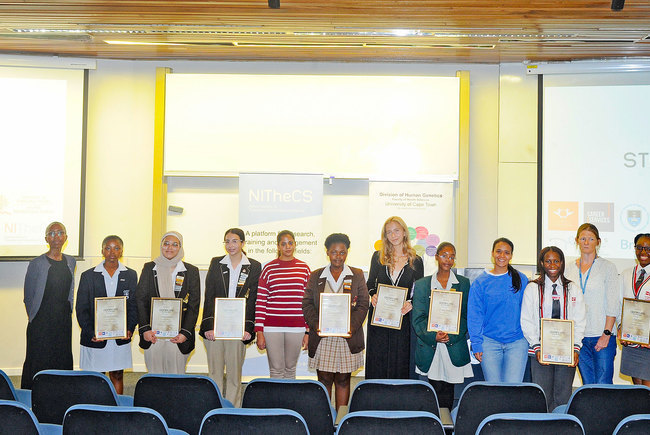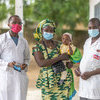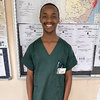Adopt a social approach to managing TB
24 March 2024 | Story Niémah Davids. Photo Unsplash. Read time 8 min.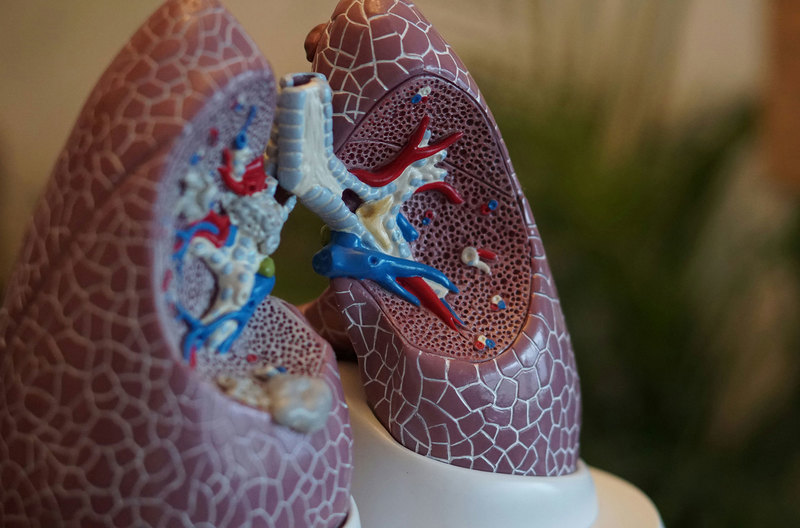
With advocacy and capacity building, a University of Cape Town (UCT) academic is determined to develop tuberculosis (TB) programmes that meet the needs of people affected by the disease. Her proposed approach is simple: adopt a human-centric approach that prioritises patients’ needs and social contexts to inform diagnoses, treatment and care.
Dr Anna Versfeld is an honorary research affiliate in the Department of Anthropology in UCT’s Faculty of Humanities. Her work combines the field of anthropology (the study of humanity) and medicine – with a focus specifically on TB – under one umbrella. Dr Versfeld believes that individuals’ social contexts shape every aspect of their lives and play a critical role in all their decision-making processes, as well as the health conditions they’re predisposed to and how they manage and respond to them.
“I see my work as supporting the move towards a global TB response, enacted at a local level, which recognises that a biomedical TB response can only be as effective as the respect it has for the people it is seeking to care for. And while my focus is on TB, this approach applies to any disease, especially those that tend to affect more marginalised populations, who often have less of a voice in shaping how care is provided,” she said.
In observance of World TB Day, which is celebrated annually on 24 March to raise awareness and inspire action to end TB, UCT’s newsroom spoke to Versfeld for more on what this means.
Niémah Davids (ND): This is a niche area of research. What is your motivation for making it your own?
Anna Versfeld (AV): Well, unlike HIV, TB care provision has historically been largely biomedically focused, though it is the quintessential social disease, which is why anthropology is so important. Thankfully, globally, there is a growing movement towards adopting a more social, rights-based approach to managing TB. And there is growing recognition that the instruction “take your medication as prescribed” is an instruction that simply can’t be followed by many people because of their life conditions. So, it’s not because they are willingly being unruly patients. It’s because there are a list of factors preventing them from taking their treatment as prescribed.
“We need to set up continual conversations between people affected by TB and those in decision-making and care provision roles.”
ND: What role does a patient’s social dynamics play in the way they respond and manage a TB diagnosis.
AV: We know that everyone who breathes can get TB because the disease is airborne, but we’re not all at equal risk of being exposed to the bacteria. And while there are some biological reasons why one person may get sick over another, the main factors that determine who gets sick from TB are social. Factors such as where the patient lives, the mode of transport they use, where they work and the nutrition they have access to all influence their likelihood of getting sick or not. Then there’s also the question of how the patient is diagnosed, how they access care and how they manage the diagnosis. Those factors are all socially shaped too.
ND: Individuals’ social contexts are often affected by substance use (either directly or indirectly). How does this affect a TB diagnosis and subsequent treatment plan?
AV: TB and substance use intersect in many ways. At the most basic level, smoking makes one more susceptible to TB. My research also found that people who use substances may read their bodies wearing a substance-use lens. For example, someone who uses tik might interpret sweating or feeling ill (potential symptoms of TB) as withdrawal symptoms and regard their weight loss as a consequence of drug use. Interpreting their symptoms in this way delays diagnosis and care and means that if quizzed by a healthcare provider, they’ll very likely answer screening questions in such way that they avoid TB detection. At the same time, healthcare providers often don’t give people they think use drugs the respect and support needed for diagnosis and successful treatment.
ND: How do we really get to grips with understanding individuals’ social contexts and how it shapes their lives, especially those living on the margins?
AV: Ultimately, it’s about believing that people are experts in their own lives. This means listening more to people affected by TB and taking what they say seriously. And more than just listening, we need to set up continual conversations between people affected by TB and those in decision-making and care provision roles. We need to make sure that people affected are included in designing, implementing and assessing all related research and programmes. This can be difficult because those affected often don’t have the resources and capacity to engage fully. But it is incumbent on those with power and resources to ensure that processes and programmes are inclusive and include capacity building.
“The next logical step is to seek to understand what is shaping people’s perceptions and choices related to TB.”
ND: That brings me to my next question. What programmes are role players encouraged to develop to respond to TB patients’ needs and contexts?
AV: There is quite a lot of exciting work going on at the moment. I think what lies at the core is a willingness to believe that people make considered choices about if, how, and where they seek healthcare, and how they respond to the biomedical care on offer. This very basic recognition has been far too absent from most TB programmes. But if we start here, the next logical step is to seek to understand what is shaping people’s perceptions and choices related to TB, so that we can set up healthcare in meaningful ways. We are already seeing a shift from “the patient must conform to the care provided” to “the care provided must be appropriate for the person seeking care”.
ND: You’ve identified that many patients’ social contexts don’t allow them to seek care or follow biomedical advice to the T. What needs to happen now?
AV: We need to do a few things. We need to develop new ways of thinking about power dynamics in decision-making processes; we need to reevaluate what care should look like for people with TB; we need to understand the role patriarchy and gender inequality play when it comes to who gets ill and who receives care; and we need to interrogate judgements about who is seen as a worthy patient. We also need to assess what legal and policy frameworks work against basic human rights and develop better, more supportive legal and policy frameworks.
These global health questions are all really anthropological and it makes for an exciting area to be in because anthropological ways of thinking really matter. But it’s also very challenging because one needs to be able to track between anthropological thinking and biomedical frameworks to be able to communicate effectively.
ND: What’s been the highlight of your academic journey thus far?
“I was incredibly privileged through my doctoral research to work with healthcare providers who are not just going through the motions, but who are truly dedicated to their work and patients.”
AV: During my postdoctoral fellowship at UCT, I translated my PhD dissertation into a book titled: Making Uncertainty – Tuberculosis, Substance Use and Pathways to Health in South Africa. The rewriting process was just such a joy. The book looks at TB care provision in the country, the historical dynamics of who gets sick, the moral frameworks that frame how care is provided for people who use drugs, and how we can find our way through to better care provision in care facilities. I was incredibly privileged through my doctoral research to work with healthcare providers who are not just going through the motions, but who are truly dedicated to their work and patients. And this meant that together we were able to craft new care-based approaches that are focused on meeting the needs of people affected.
 This work is licensed under a Creative Commons Attribution-NoDerivatives 4.0 International License.
This work is licensed under a Creative Commons Attribution-NoDerivatives 4.0 International License.
Please view the republishing articles page for more information.
Faculty of Health Science News








